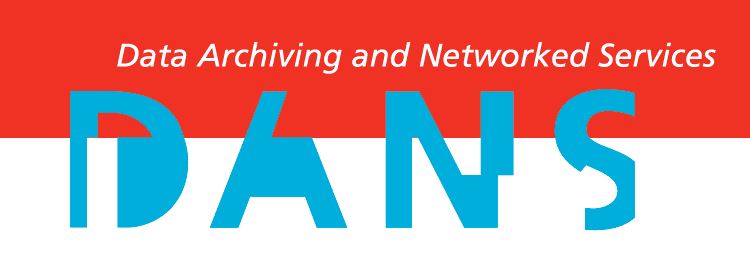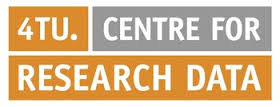Open data
"Sharing data:
good for science, good for you"
DANS, 2013
Open Science contains open access to academic publications, research data, learning tools, software, et cetera. In the case of research data, we speak about open data. Open data offers many benefits to scholarship. It increases the visibility of research results, it is citable thanks to digital object identifiers (DOIs) and it encourages the reuse of your data for new research questions and for verification purposes.
On February 9th, 2017, the report National Plan Open Science (NPOS) was presented in The Hague. One of the four central themes in this Plan is making the optimal reuse of research data.
Research funders in the Netherlands
Increasingly research funder policy requires institutions to place and manage research data in the public domain. Since 1 October 2016 NWO developed policy in the area of data management. NWO wants research data that result from publicly funded research to be found, accessible, interoperable and reusable (FAIR) available to other researchers. This takes into account aspects such as privacy, public safety, ethical restrictions, property rights and commercial interests.
Policy research institutions
The universities, university medical centers and universities of applied sciences also develop policy in the field of data management. An overview of the websites of these organistions can be found on the website of the National Coordination Point Research Data Management.
Storage research data in the short and medium term
In 2013 a number of Dutch universities, universities of applies sciences, and research institutes joined the DataverseNL, a partnership that jointly manages and deploys the Dataverse Network open source application for the archiving, citing and sharing of research data in the short and medium term by researchers themselves. The data management is in the hands of the institutions; DANS has been managing DataverseNL since May 2014.
Sustainable storage research data

In the Netherlands DANS (Data Archiving and Networked Services) and 4TU.ResearchData provides durable storage and access to researchdata. These results are also made public by NARCIS.
DANS provides sustainable access to research data from the humanities and social sciences through EASY, an online archiving system. Researchers can use EASY to archive their own research data for the long term.
NARCIS (a service of DANS) is the gateway that provides access to hundreds of thousands of scientific datasets from researchers at Dutch universities and research institutes.

4TU.Centre for Research Data (4TU.ResearchData), a cooperation of TU Delft, TU Eindhoven and University of Twente, guarantees the storage, reuse and continuing accessibility of science and engineering research data.
DANS, 4TU.ResearchData, and SURFsara have joined forces on sustainable data archiving within the Research Data Netherlands (RDNL) partnership. The partnership is also open to other parties.
An overview of data repositories in the world can be found via Registry of Research Data Repositories, re3data.org.
Journals
A growing number of journals have a Data Availability Policy (DAP). They publish papers only if the data used in the analysis are clearly and precisely documented and readily available to any researcher for purposes of replication.
Together with Brill publishers DANS publishes the Research Data Journal for the Humanities and the Social Sciences. The RDJ is a peer-reviewed journal, which is designed to comprehensively document and publish deposited datasets and to facilitate their online exploration. RDJ is e-only and open access accessible.
European Union
Open Research Data Pilot
Also the Europese Union is in favor of open data. For the Horizon 2020 program applies an Open Research Data Pilot. Researchers funded from this program and whose research falls within nine designated areas, are obliged to publish their data open access. To this end, they must first write a data management plan. Opt-out (not participating in the pilot) is possible, for example for privacy reasons. This should be clearly described in the data management plan. Also, one can voluntarily participate in the open data pilot (opt-in). From 2017 the Open Research Data Pilot applies for all research areas. The Horizon 2020 project OpenAIRE 2020 supports the open access policy of the European Commission. On this website one can find more information about the Open Research Data Pilot.
European Open Science Cloud
The European Union is investing two billion euros in the period 2017-2022 to realize a European Open Science Cloud (EOSC) by linking the fragmented European research infrastructures. Part of this is that researchers will be required to make data from EU-funded research available according to the FAIR principles: the data must be findable, accessible, interoperable and reusable. The EOSC offers researchers and innovators an open platform for sharing and combining research data, also across geographical and disciplinary boundaries. EOSC is again part of the overarching European Cloud Initiative, which ultimately also has to connect business, industry and public facilities via the cloud. In 2017 the EOSC project started with a two-year EOSCpilot. Starting in January 2018 two new EOSC projects were launched in January 2018: EOSC-hub and OpenAIRE Advance.
You are here
Dutch National website providing information for academics about the advantages of open access to publicly financed research








